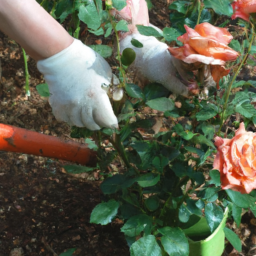Gardening for the Elderly How It Helps
How Does Gardening Help The Elderly
Gardening is a versatile and rewarding activity that can be beneficial to any age group. For the elderly, gardening has multiple positive impacts that can contribute to a healthier and more fulfilling lifestyle. In the following article, we go in-depth to discuss how gardening can help the elderly in eight key ways.
1. A Way to Combat Loneliness
Gardening gives the elderly an enjoyable activity that they can do either alone or with family or friends. As many elderly people struggle with loneliness, gardening is the perfect set of activities to provide them with socialization and companionship. For those elderly living alone, gardening can also provide them with a sense of purpose and achievement, as they watch their work progress throughout the year.
2. Physical Benefit
Although gardening can be light work, it does provide beneficial physical activity. The flexibility of gardening activities means that elderly gardeners are able to tailor their activity to their own physical capabilities. Regular garden tasks such as planting, weeding or rake moving can improve cardiovascular activity, flexibility and strength, all of which can be a great help for elderly people that do not get regular physical activity.
3. Cognitive Benefits
Gardening can often lead to a wide variety of complex thought processes, from decision-making to problem solving, requiring the elderly to think carefully and critically. These cognitive benefits can help to stimulate the mind, and help to keep the elderly active and engaged while they are in the garden.
4. Opportunity to Create
Gardening provides elderly people with an opportunity to be creative, as many people enjoy making decisions on what to plant, where to raise their flowers, and how to arrange their gardens. This ability to exercise creativity can be incredibly beneficial for elderly people, as it gives them a sense of control over their own environment.
5. A Sense of Accomplishment
As an elderly gardener's plants and vegetables develop, they are achieving a sense of accomplishment. It can be incredibly fulfilling to see the fruits of your labors, and this sense of achievement can lead to further dedication and hard work.
6. Stress Relief
Gardening can also be a great way to reduce stress in the elderly, as the activity requires focus and concentration, giving the elderly the opportunity to forget about their worries and focus on the task at hand. It can also provide elderly people with some much needed me-time', away from the hustle and bustle of day to day life.
7. Opportunity to Connect with Nature
Gardening allows the elderly to reconnect with nature and appreciate the beauty of the world. This provides elderly people with a great sense of peace and tranquility. Gardening also allows them to appreciate the cycle of life and the fact that their hard work can contribute to something that is much larger than just them.
8. Connecting with Other Gardeners
By creating a garden, the elderly can come into contact with other gardeners in their area. This can be through joining a gardening club or simply exchanging tips and stories with the neighbors. This can help them to make friends, as well create a sense of community.
In Summary
Gardening can be a great activity for elderly people, providing them with physical, mental and social health benefits. From combating loneliness and stress to helping maintain physical and cognitive activity, gardening can make a huge difference to the lives of the elderly. In addition, it provide them with the opportunity to make new friends, be part of a community and to get out into nature.
What to Expect Next
The next step is for elderly people to decide if gardening is right for them. If they decide to give it a try, there are plenty of resources available, such as online tutorials, YouTube videos and gardening guides. It is also a good idea to join up with a gardening club, as it can provide them with the support, advice and social interaction that they may need to make their experience as rewarding as possible.

Previous Page
Next Page
